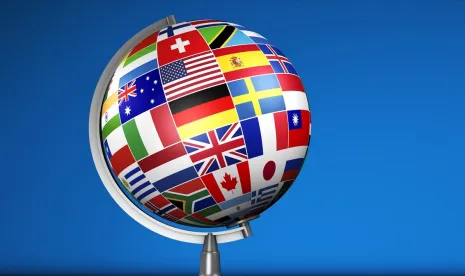We’ll give him this: President Trump has an ambitious trade agenda. This fire has many irons in it, and some of them are getting hot. Here at the Global Trade Law Blog, we’ve been following trade law for approximately 250 years and we’ve never seen anything like it in breadth or scale. The administration asks us to trust that there is a disruptive and innovative grand strategy behind it, but to some of us it looks (particularly in comparison to a mostly orderly international trading system in place since 1945) like madness. The question of whether “yet there is method in’t” may only be answered by future historians. For the time being, herewith is our snapshot of the Trump trade agenda, late June 2018 edition.
-
NAFTA has a drop-dead date: President Trump promised to re-negotiate NAFTA. Or tear it up. Or tear it up and negotiate separate bilateral deals with Canada and Mexico. As of June 27, 2018, none of those things has happened. And if a deal can’t be signed by July 1, it may need to wait until 2019. That’s because the frontrunner in the Mexican Presidential election, Andres Manuel Lopez Obrador, has inexplicably obtained agreement from the current president that, if he wins the election, Obrador will immediately (well before his inauguration) appoint new members to the NAFTA negotiating delegation. That would likely complicate any open negotiating issues (such as dairy protectionism, minimum wages automobile rules of origin, and the proposed 5-year sunset provision), and threaten to reopen issues the parties think they’ve reached agreement on. That places a July 1 deadline on reaching a deal before the Mexican election. We’re predicting no deal. If we’re right, NAFTA will remain unaltered until at least the U.S. midterm elections are over in November. That will present President Trump with the prospect of essentially starting over with the three parties, or pursuing bilateral negotiations after the elections. In either event, we think there is little likelihood of a renegotiated NAFTA this calendar year.
-
Tit-for-tat tariff increases will continue. The last time the United States imposed substantial tariffs on foreign goods was 2002, when President George H.W. Bush briefly bought into the mercantilist idea that U.S. manufacturers could get rich by beggaring their neighbors. But a little paper published in 1776 roundly debunked that theory, and the history of world trade wars disproved it entirely. Also the tariffs depressed U.S. GDP and employment. So cooler heads prevailed and President Bush revoked the tariffs after less than nine months. Now President Trump has revived the theory and put it to the test with a new list of tariffs on aluminum and steel from multiple countries, and a broad list of additional goods from China. Now comes human nature, in the form of retaliation: The EU announced retaliatory tariffs on motorcycles (inducing this mind-boggling announcement) and many other red-state products.
Mexico, Turkey, and India have issued retaliatory tariffs. Canada and China are up next. It is possible that a NAFTA deal could ease the Mexico and Canada tariffs, and that China would unilaterally decide not to let its first wave of retaliation come into effect. The greater likelihood, in our view, is that Canada’s retaliation on steel, aluminum, and lots of consumer goods will go into effect July 1, and China will follow suit with a large list of U.S. goods on July 6. -
The United States will restrict foreign direct investment. As we outline in more detail here, the movement to reform U.S. national security review of foreign direct investment is now unstoppable. One problem is that the Administration and Congress are both working quickly on separate tracks to produce changes to the law governing national security reviews by the Committee on Foreign Investment in the United States. The lack of a unified direction has created multiple paradoxes, including this confused statement out of the Administration, appearing to try to appease China. In any event, we expect a broad CFIUS reform bill to reach the desk of the president in this Congress, likely this summer. And we expect it to be signed into law quickly thereafter.
-
The giant sucking sound from China will continue to suck, vacuuming up valuable U.S. intellectual property. As we predicted here, U.S.-China negotiations have not yet produced agreement on intellectual property protections. We can now pretty boldly predict that Chinese tariffs on U.S. goods will start to take effect July 6, raising the price of U.S. exports to China. We have questioned the President’s tactic of linking the intellectual property issue to tariffs. It may yet bear fruit, but it has not done so yet. The effect on the ground is that, for the time being, U.S. companies entering China will continue find that intellectual property transfer is a price of admission. And U.S. companies exporting goods to China will notice a distinct drop in demand.
-
Iran. Remember Iran? As we reported here, President Trump in May withdrew the United States from the Iran nuclear agreement. Secondary U.S. sanctions are now going back into effect, meaning that non-U.S. companies that have been doing business in Iran lawfully will now have to deal with the threat of U.S. sanctions. Yesterday, the United States Department of Treasury, Office of Foreign Assets Control (OFAC) revoked Iran-related General Licenses that permitted non-U.S. subsidiaries of U.S. companies to conduct certain activities with respect to Iran. This November, virtually all other previously permitted activities in Iran must end. Iran hawks are surely pleased, as this will re-impose punishing economic isolation on Iran. But those hawks haven’t yet, in our view, explained the virtue of removing all barriers to Iran’s incentive to pursue nuclear weapons. We’ll continue to keep you posted in case any grand strategy is announced.



 />i
/>i

